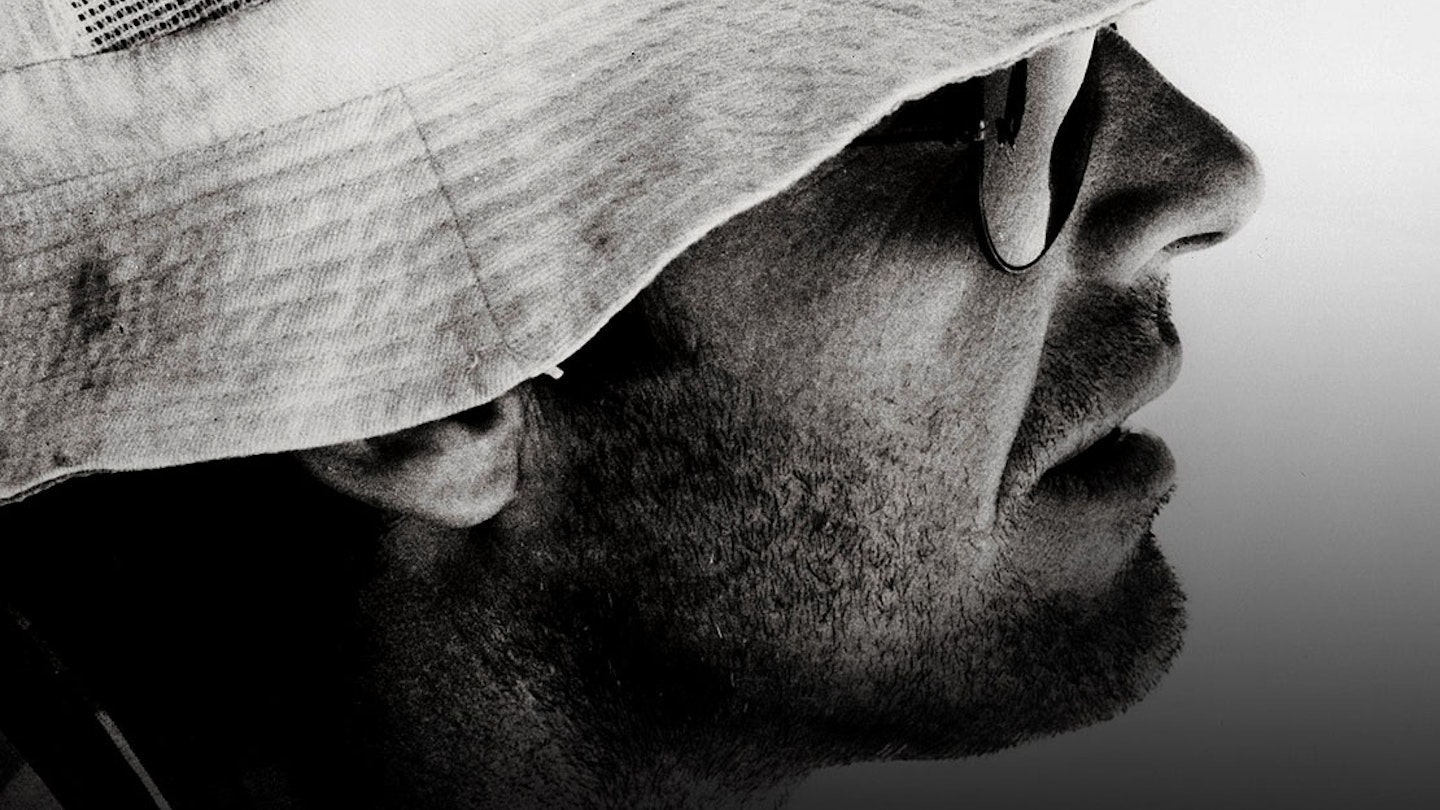This article was first published in Empire Magazine{
During a rare press interview for 2002's About Schmidt, Jack Nicholson informed his audience that the biggest challenge in playing Schmidt – a worn-out widower embarked on a Winnebago odyssey – had been stripping himself of all elements that were recognisably 'Jack' and building his character from the ground up. This is interesting for two reasons. The first is that even Nicholson was aware, like many of his critics, that his persona could, if unchecked, drown out the subtleties of his performance; that for cinema audiences he is as much a draw as any part he happens to be playing.
The second is that it isn't true. There is a vintage Nicholson moment, and it's utterly deliberate: it happens when Schmidt, after embarking on said Winnebago odyssey, phones his daughter from a gas station to tell her he is paying her an unexpected visit. The kind gesture, he is informed, is not welcome. And then it happens. The brow seems to darken slightly, his sibilants become slightly pronounced, and just a little menace creeps in. "I assume," he announces, "that you won't object to me sending any more of those cheques." It's rich, dark, delightful Jack. And then, as quickly as it arrived, it's gone, and he's a slightly rumpled older man in a cruddy anorak driving a mobile home. This odd schizophrenia is typical of the conflictions and conundrums which, as we shall see, Nicholson deliberately orchestrates from behind perma-shades and a grin that can be seen from space.
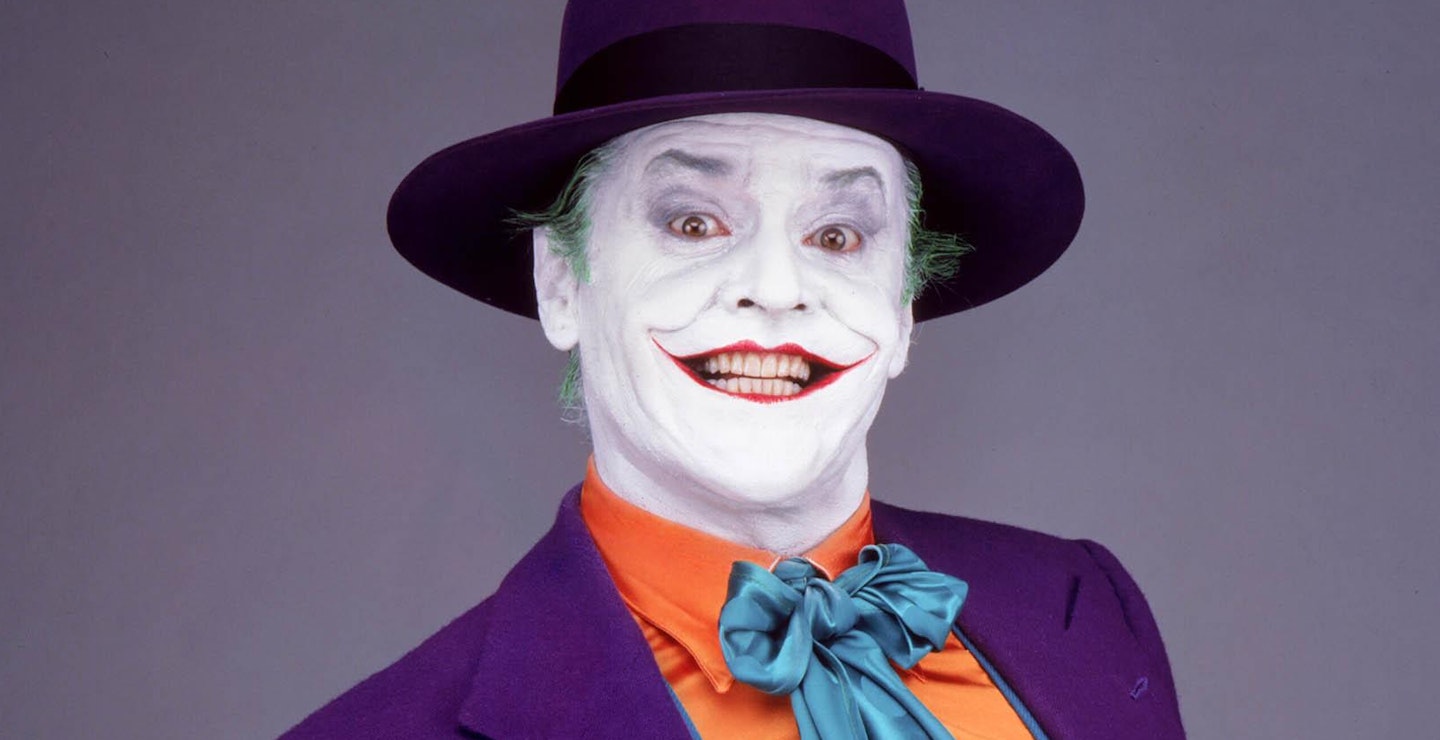
And talking of space, if, as we are now reliably informed, men are from Mars and women from Venus, it should come as little surprise that a being as unique and splendid as Jack Nicholson hails from Neptune. Neptune, New Jersey, to be precise. The Nicholson family were neither very rich nor very poor – he has always been impatient with biographically convenient suggestions of character-forming deprivation – but there was a gaping fissure at the centre of his childhood in the shape of Nicholson pere, an ex teetotal drunk (surely the very worst kind, having presumably a hell of a thirst on and much lost time to make up). According to Peter Thompson's muck-raking biography – and in Nicholson's case there are a good 300 pages of ordure to be turned – Nicholson Sr. remained a strict non-imbiber throughout Prohibition until, on the day of its repeal, he got blasted on cheap peach brandy and was never properly sober thereafter.
The net result of this was that Nicholson was brought up by women in the shadow of a dysfunctional father. Amateur psychologists will no doubt swiftly point to these circumstances as formative of the adult Jack, and his enthusiastic pursuit of female company and apparent inability to sustain a relationship that didn't at some point self-destruct. And maybe they were, but more importantly, his female family encouraged him in his writing and acting to the point that by the early '60s he was in Hollywood, trying to write and starring in a series of mostly godawful B-movies (The Terror, The Little Shop Of Horrors and Hell's Angels On Wheels being typical examples), while hanging out with the likes of Harry Dean Stanton, James Coburn and Robert Towne.
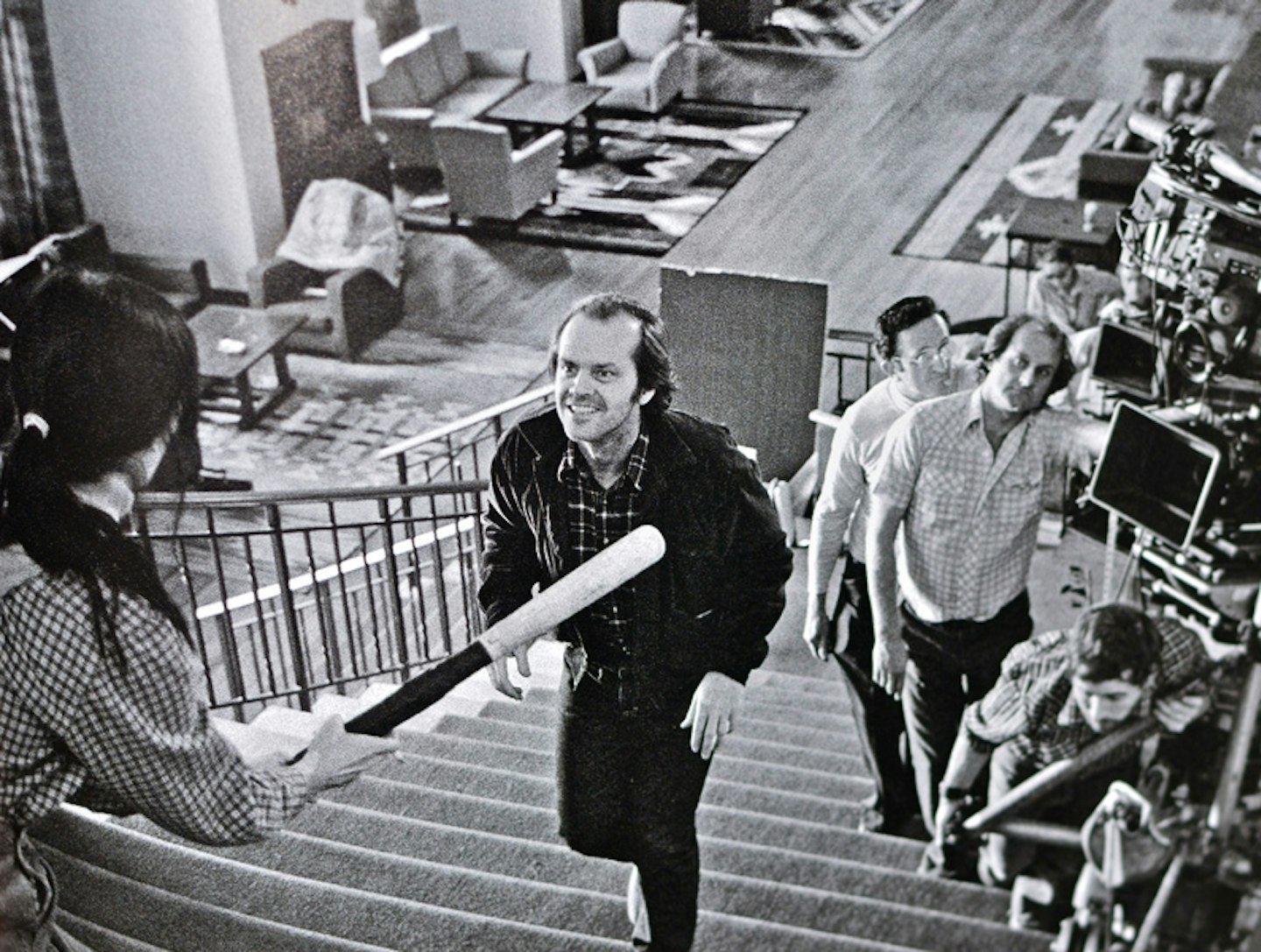
But while Nicholson's contemporaries, who spent their time nursing cappuccinos in the coffee shops and pharmacies on the upper part of the Strip, embraced Strasberg and his Method, mining their short life stories to fuel their dramatic angst, Nicholson dabbled with it for a while and then declared it not for him. Instead he embraced his immediate instincts, trusting them more than any highfalutin acting 'exercises'. Brando, De Niro, Hoffman and Pacino would all pride themselves on their chameleon qualities (Hoffman to the point of ridicule, transforming himself into a 100 year-old man, a woman and an idiot savant within the space of a decade-and-a-half, and earning the honour of regular appearances on '80s satire show Spitting Image essaying, brilliantly, the role of a cabbage). Rather, Nicholson trusted himself. "If you ever have an instinct in the middle of a scene, just go with it," was his advice to a young colleague. "And if it doesn't work, well, there's always take two."
The result of this decision was that, strangely, his acting style would bear more resemblance to that of the stars of the old studio system, the ruins of which in the early '60s were still smouldering into the Los Angeles smog, than that of the young Turks. Like John Wayne, Cary Grant or Jimmy Stewart, Nicholson never completely annihilates his own character while adopting another – instead he confidently riffs on himself, reasoning, probably correctly, that with his name above the marquee, audiences want to see at least a little of the guy that attracted them there in the first place. Certainly he changes constantly; contrast the Grand Guignol insanities of Jack Torrance in The Shining with the quiet agonies of the equally unhinged retired detective Jerry Black in The Pledge, and you see as much range as in any of the Method Men, but unlike them, for whom being recognisably oneself was the ultimate professional sin, Nicholson winks at us, very occasionally, through the mask of whatever role he happens to be playing. He's the same and different at the same time: quite a feat, and always a lot of fun.
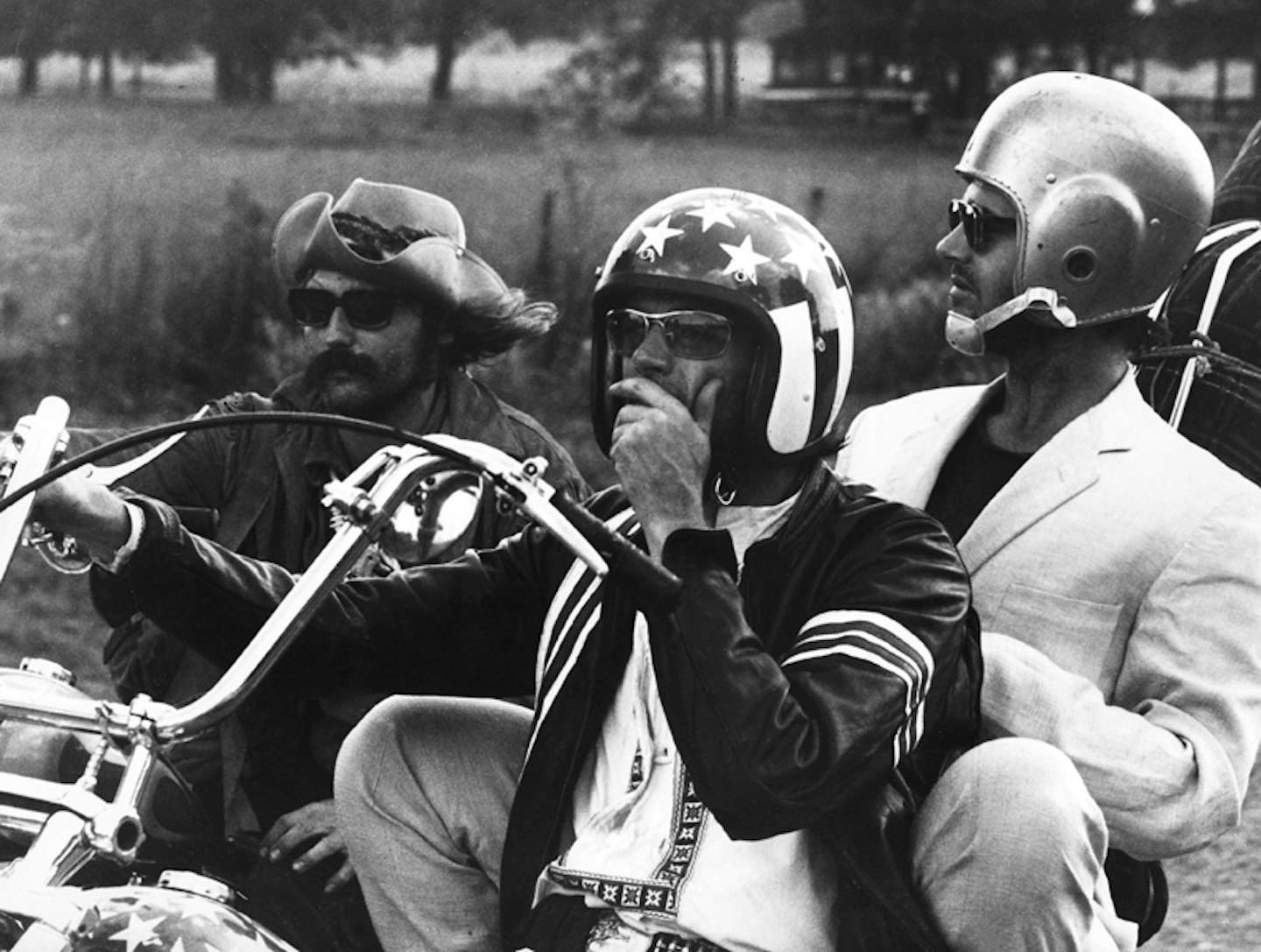
The movie that first propelled Nicholson before the eyes of the cinemagoing world was, of course, Easy Rider, a counter-cultural confabulation cooked up by Dennis Hopper and Peter Fonda. It's the first time after 16 or so movies that we see the emergence of a recognisable Nicholson type: as booze-sodden lawyer George Hanson he's wounded and confused and strangely poetic, all of which helps offset the hippie pompousness of much of the rest of the film. While Hopper and Fonda see themselves as counter-cultural frontiersmen, he's just like the rest of us: something of a passenger, looking on in beatific bewilderment.
Easy Rider would be the triumph and ruination of Hopper, and Fonda scarcely fared better; the movie was so achingly prescient it began to date the moment someone yelled that it was a wrap. Other fine actors of the period suffered because their parts were so painfully fashionable that they were indelibly identified with values from an age that swiftly vanished and became the object of quaint nostalgia. But Nicholson was wise, or lucky, enough always to play characters who were somehow strangers in the Age Of Aquarius, outsiders looking in. He was Jonathan Fuerst in Mike Nichols' sexposé Carnal Knowledge, in which he played a man unable to find a place for himself in any decade – '50s, '60s or '70s – and in which he survived the experience of starring alongside echt-Aquarian Art Garfunkel.
He has starred in three genuine and enduring classics: The Shining, Chinatown and One Flew Over The Cuckoo's Nest. Each in some way exploited his bifurcated nature expertly. The Shining certainly delivered on the violent rage front, but it was the vulnerability of Jack Torrance that makes him more than a trashy psycho with an axe and an attitude. He's a picture of intellectual impotence struggling with the constant fragility of the dry alcoholic. In Chinatown – which brilliantly plays out its classic noir in muted, dusty Technicolor – Nicholson delivers a tour de force as J. J. Gittes. But it was in One Flew Over The Cuckoo's Nest that he gave possibly his greatest performance, and certainly the one which really cemented his reputation as an actor able to deliver performances that were subtle, profound and unashamedly crowd-pleasing. Randle P. McMurphy was an anti-hero for the times, and in Louise Fletcher's Nurse Ratched he got to act against a monster unrivalled in cinema until Hannibal Lecter.
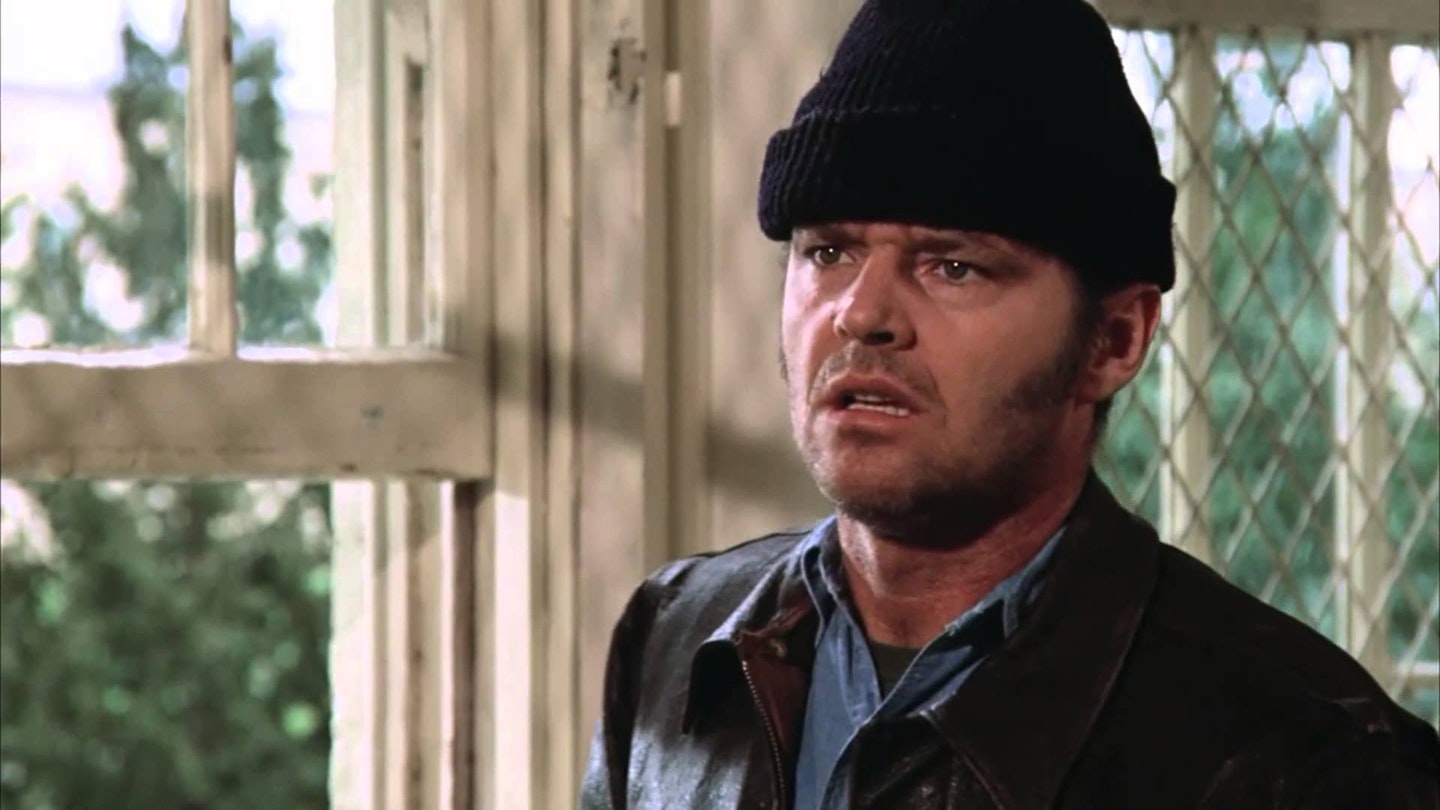
In the 1990s he had the misfortune to be adopted by the lads' mag yahoos as a kind of unofficial patron saint. It's yet another irony in a career defined by them, because, if anything, Jack Nicholson at his best is about the failure of machismo, the fragility of male ego and the Pacifics of pain that can lie beneath its surface. It's shocking how many of his movies end with unexpected images of the alpha male unmanned, the pack leader castrated. In Sean Penn's The Crossing Guard, as a father attempting to avenge the death of his daughter, he ends up a weeping wreck crouched over her grave holding her killer's hand. Charles Bronson he ain't. Then he is frozen and forever trapped at the end of The Shining, the only real victim of The Overlook Hotel, and he's driven insane by an unkeepable promise to solve an unsolvable case in The Pledge. The conclusion of Carnal Knowledge has our supposed stud paying a prostitute as he tries to achieve an elusive erection, while One Flew Over The Cuckoo's Nest ends with his blank, lobotomised face – the ultimate invocation of man's spirit crushed. At the end of Five Easy Pieces he just runs.
When directors grope for the malevolence they think defines Nicholson they invariably come up empty handed, because at his most effective he is not about vacant rage but about desperate humanity. George Miller cast him as the devil in The Witches Of Eastwick, a role which puts him in the august company of De Niro, Pacino and Hurley, but what emerged was little more than a diverting pantomime act. It must have been irresistible for Mike Nichols to imagine him as a lycanthrope in Wolf – the lupine eyes and extravagant eyebrows rendered the make-up department's task half done – but the result was at best a soggy satire.There have been accusations of coasting of late. Maybe it started with his turn as The Joker in Batman (the joke presumably being on Michael Keaton in that, after garnering a net total pay cheque of $60 million, Jack made more than anyone else out of the movie while having to do very little – they even painted his grin on). He turned up in Tim Burton's thin comic-strip Mars Attacks!, and did less than Tom Jones for the unaccountable success of the film. And in A Few Good Men he had huge fun shouting rather than acting at little Tom Cruise (who, in his ascetic personal life, presumably qualifies for the appellation "flat-bellied martinet" Nicholson has disapprovingly used to describe the new breed of fun-averse Hollywood stars), but it was hardly a vintage performance.
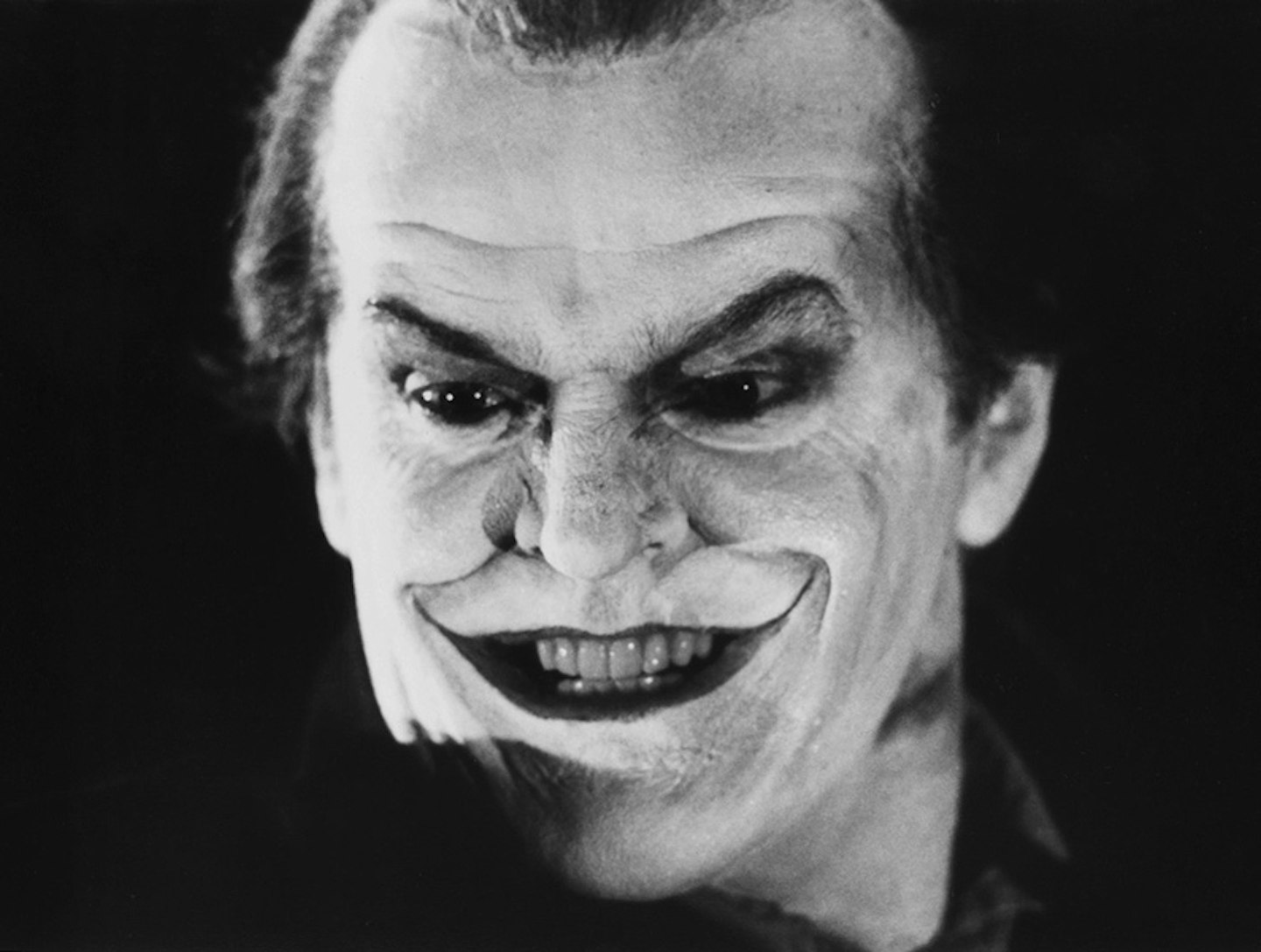
But apart from these minor wobbles, Nicholson's third act has proved at least as satisfying as the first two. It's certainly shaping up to be unique. No other actor of Nicholson's stature has ever squared up to the subject of ageing or, given that near peerless playboy reputation, had as much to lose in doing so, with the gleeful energy that he has. Oh sure, in Unforgiven Clint Eastwood meditated soulfully, and brilliantly, on the mortality of the genre he had made his own, but can you imagine Clint suffering a Viagra-induced heart attack while engaged in sexual congress with a women a third his age, before staggering around a hospital ward, his 67 year-old arse hanging out of the back of his gown for all to see, like Nicholson did in Something's Gotta Give? In both About Schmidt and The Pledge he was brave enough to tackle the mostly uncharted, unglamorous waters of the stresses of retirement and of uninvited change and, for Schmidt, was rewarded with an Oscar nomination (though admittedly the role was a canny choice – the average Academy member is well into his late 60s).
In 1977, in a typically expansive mood, he summed up his life thus: "I've drunk every drink, I've balled all the women, I've done all the drugs." Decades later, with apparently no movie currently in production, and his 80th birthday hoving into view, we can only hope that his appetite for movies remains unsated.
Nicholson by his peers
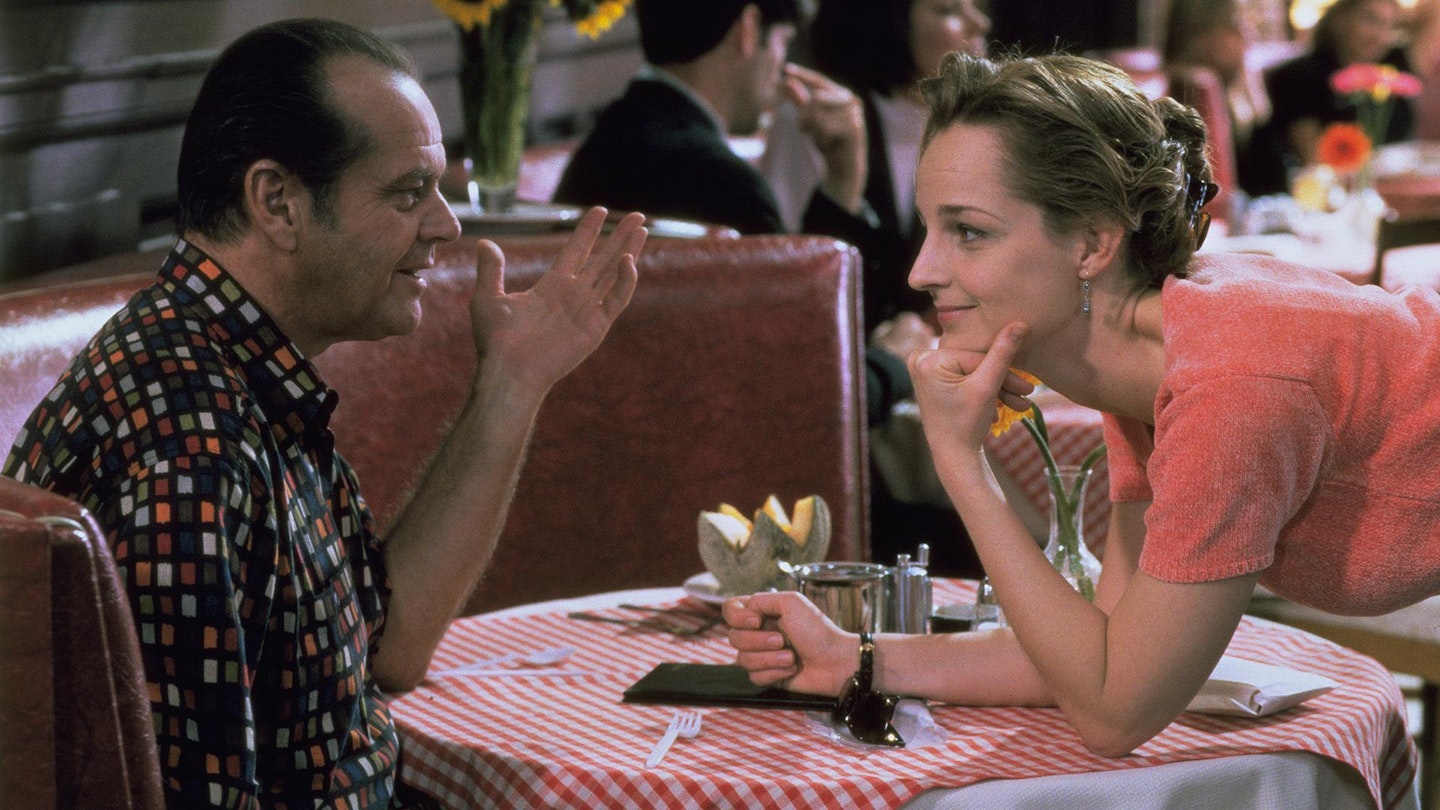
*"He frees you from remembering that pretension exists in the world." *
~ Terms Of Endearment director James Brooks
"Working with Jack is sort of like standing in front of the Grand Canyon. I don't know, there's too much going on there and you're just this little speck on a precipice. He's like this huge, massive kind of structure. He's one of the Seven Wonders Of The World."
~ Reds co-star Diane Keaton
"James Cagney, Spencer Tracy, Humphrey Bogart, Henry Fonda. After that, who is there but Jack Nicholson?"
~ Carnal Knowledge director Mike Nichols
"He's a glorious actor, one of the most generous in American film."
~ Five Easy Pieces screenwriter Carole Eastman
"His talent comes from experiencing emotion and pain – actors are especially in touch with stuff others don't want to see. Beyond that, he just has an extraordinary intelligence – one of those minds that is almost too fast to keep up with."
~ The Shooting director Monte Hellman
"Nicholson is an actor and loves to act."
~ A Few Good Men director Rob Reiner**
"Jack is a textbook actor who's very intuitive. He is absolutely brilliant at going as far as you can go, always pushing to the edge, but still making it seem real."
~ Batman director Tim Burton
"He's the only top-talent person I know who doesn't bitch about previous work, from whom I've never heard a speech about what a no-talent or a fuck-up someone else is. God knows, he must have reasons to make those speeches. And I don't think it's strategy with him – I think it's absolutely felt."
~ Writer Buck Henry
"He told me some stories about other actors he'd worked with. It's just like you and I are talking right here, right now, except you're Jack Nicholson, you know?"
~ A Few Good Men co-star Tom Cruise
"A bunch of us who hung out used to give each other nicknames and we called Jack 'The Weaver' because he weaves these magical sentences. Half the time I don't think we understood what he was talking about, but the way he expressed himself was so rich, you didn't care."
~ Carnal Knowledge co-star Candice Bergen
"He seems to see through the bullshit."
~ Targets director Peter Bogdanovich
"He's a 20th century icon. His power is less to do with glamour and more to do with something very complex and dark that people recognise in themselves, but so beautifully packaged he can get away with it."
~ A Safe Place director Henry Jaglom
"Jack is much bigger in all respects than the characters he plays. He would never throw a dog down a disposal chute, as he does in As Good As It Gets; he would choke it to death right on the spot."
~ Six-time director Bob Rafelson
"What gives Jack charisma is that he is both masculine and very feminine. Both profane and extremely sublime, all at the same moment."
~ The Witches Of Eastwick director George Miller
"Crazy, nasty, he knows life. And he's the most highly-sexed human being I've known… He's just the devil."
~ Batman co-star Kim Basinger
"Jack is a being to being, spirit to spirit person with no time for nonsense."
~ Five Easy Pieces co-star Karen Black
"There is real hurt inside – there's no way of resolving it, ever."
~ Easy Rider co-star Peter Fonda
The world according to Jack
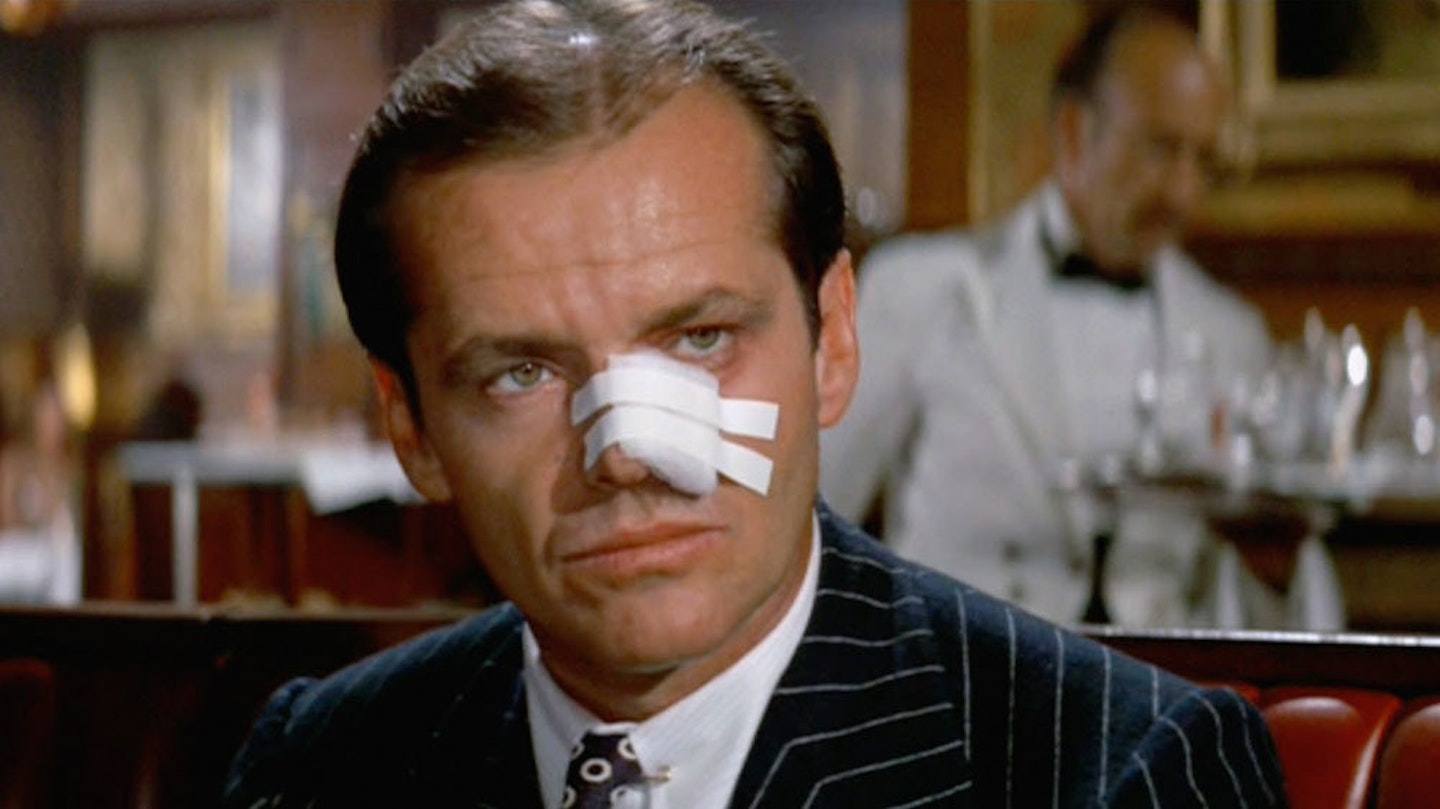
ON TELEVISION... "Demographics is eating us all alive – as Nietzsche predicted it would. The more readers there are, by necessity, the quality of writing must deteriorate – that's what television represents to the cinematic form."
ON ACTING... "The actor is Camus' ideal existential hero, because if life is absurd, and the idea is to have a more vital life, therefore the man who lives more lives is in a better position than the guy who lives just one."
ON ADVICE FOR THE YOUNGER MAN... "I prefer the company of women. I'm buzzed by the female mystique. I always tell you young men, there are three rules: they hate us, we hate them; they're stronger, they're smarter; and most important, they don't play fair."
ON DETENTION... "I always wrote my way out of trouble at school. I had to stay after class every day my sophomore year and they would assign you to write a 1,000-word essay story and I'd write thousands of words. By the time I knew no-one would be reading anymore, I'd slip in all sorts of mean comments about people who ran the school."
ON VANITY... "I'm very '50s Zen – all tributes are false, all is vanity."
ON CELEBRITY... "The average celebrity meets, in one year, ten times the amount of people that the average person meets in his entire life."
ON TELLING PORKIES... "You only lie to two people in your life: your girlfriend and the police."
ON SEX... "I'm preoccupied with sex. I love it. Most people are afraid of their feelings in this area. [Austrian psychotherapist Wilhelm] Reich says we form our personalities, our families and our governments around our neurotic armour."
ON DRUG-TAKING... "I've said forever that I smoke marijuana. I missed no acting classes. I haven't missed a day's work through illness. I'll put my medical charts, my sanity charts, up against anybody's."
ON HEROISM... "I don't feel heroic. Or anti-heroic."
ON NEW YORKERS... "New Yorkers will not be one-upped – tell this man he's a racist, and he'll become more racist and start doin' jokes from Amos 'n' Andy on ya."
ON ART... "My first art teacher said art is one thing: a stimulating point of departure. That's it."
ON HIS PULLING TECHNIQUE... "I start off like a wallflower, but when I come off the wall I'm like a banshee."
ON THE BENEFITS OF BAD MOVIES... "Once you've been really bad in a movie, there's a certain kind of fearlessness you develop."
ON HIS LOOKS... "I've been physically dissected more than any frog in a biology class – my eyebrows, my eyes, my teeth. And now it's my stomach."
ON THE GOLDEN AGE OF THE '70S... "Well, not only were films more adult then but there was such a thing as the American film underground. The advent of the film schools has kind of co-opted that. There wasn't as much college business about films back then as there is now, and that has absorbed a lot of that energy, which is too bad. You eventually came back in from the experimental thinking about film, but it was the best education you had over what you could and couldn't do specifically."
ON HIS BEST FEATURE... "My best feature is my smile. And – praise heaven – smiles don't get fat."
ON CAREER CLIMBING... "There are two ways up the ladder: hand over hand or scratching and clawing. It's sure been tough on my nails."
ON WOMEN... "Women are not as confused as men but that's always been true. We men are boring to women because there are only about 12 types of us, and they know all the keys. And they're bored by the fact that we never escape our types. I only know about this because I'm the type they talk to about what they really think."
ON HIS MOTTO... "My motto is: more good times."
The 10 greatest roles
By Kim Newman
10: THE PLEDGE (2001)
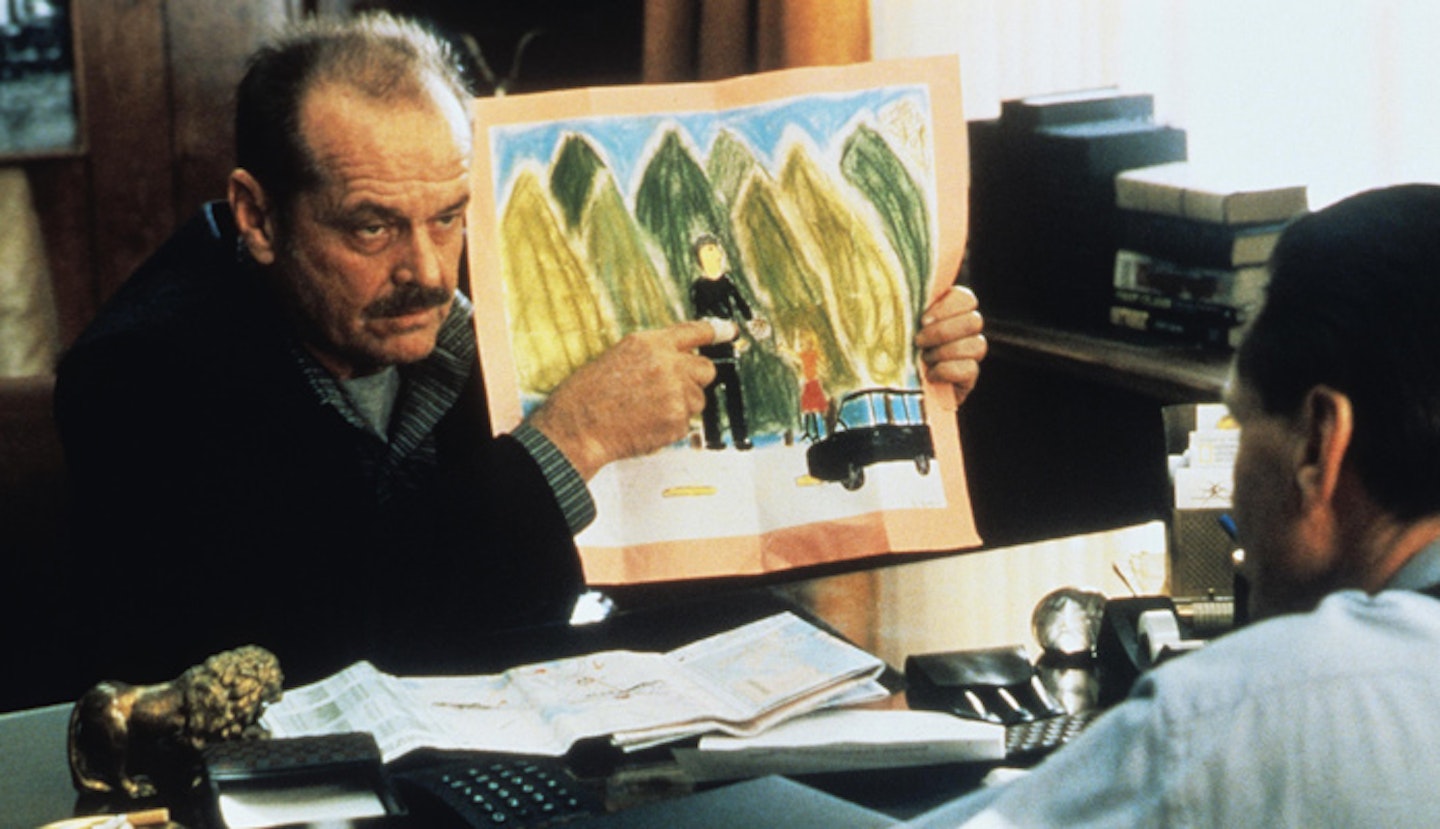
Nicholson is at his most dour in one of the small films he slots between crowd-pleasing comedies. Irrevocably committed after promising grieving parents he will get their child's killer, Nicholson's stolid lawman, Jerry Black, takes his obsession into retirement, hints at its tightening grip as he inches over the line, and seems oblivious as he taints the promising relationship with waitress Lori (Robin Wright Penn) by using her child as bait. Most memorable moment: Mumbling Jerry lost to insanity, undone by the tragic irony that he was right.
9: THE KING OF MARVIN GARDENS (1972)
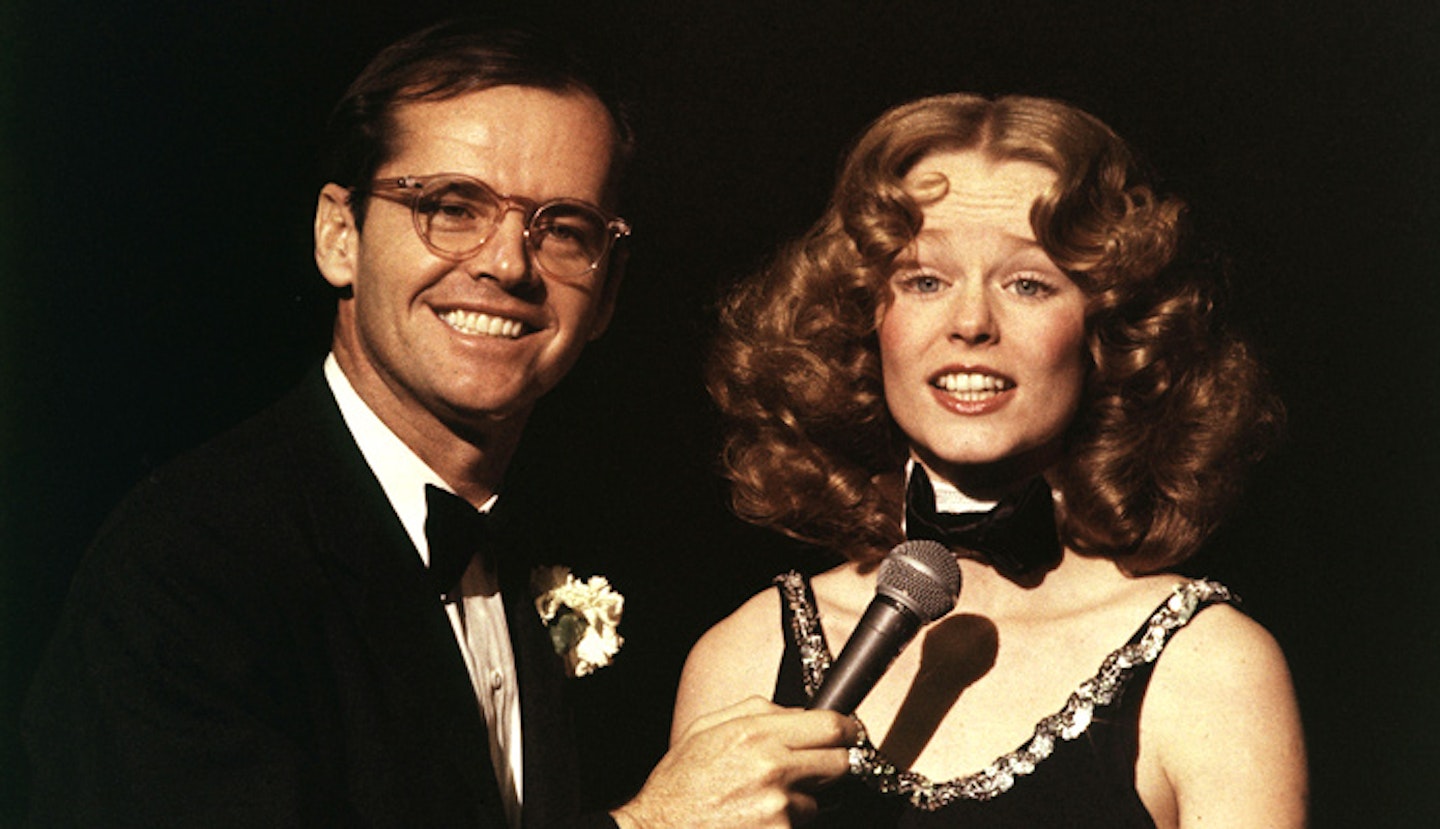
Relentless downer this may be, but there is much pleasure to be gleaned from the sheer unexpectedness of Nicholson as buttoned-up talk show host David, rather than feckless loser Jason (Bruce Dern). Nicholson's emotional detachment is that much more impressive when demonstrating David's only release: fantasizing, philosophizing and rewriting his life as a fabulist on air. Most memorable moment: David spins a yarn about humans having sex with dolphins.
8: ABOUT SCHMIDT (2002)
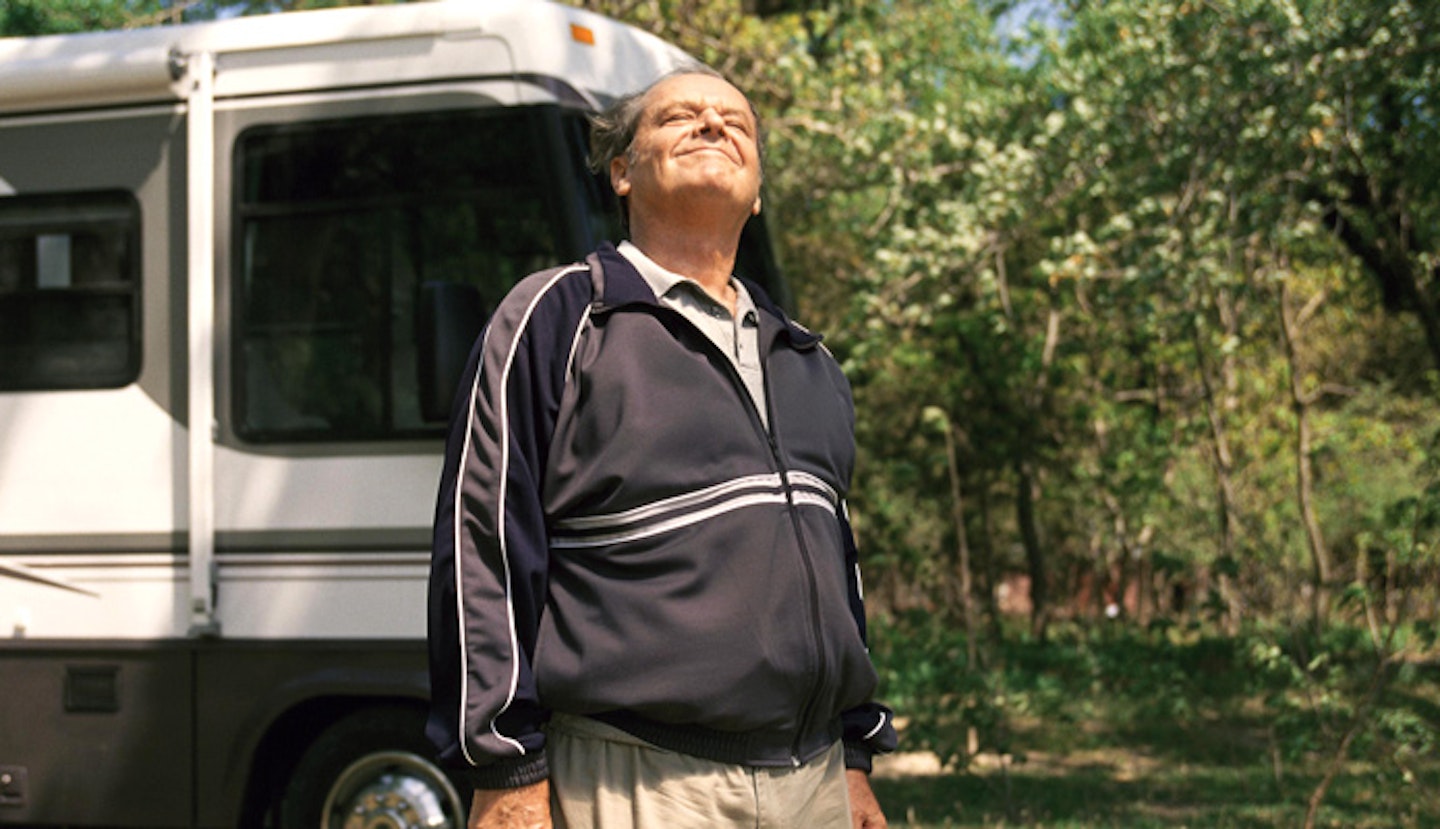
Of the juicy comedy turns Nicholson has embraced with no trace of vanity, Schmidt gave him the best opportunities to spring between drollery (voiceovers of the inappropriate letters he writes to the African child he sponsors), subtle underplaying (aching for his late wife's forgiveness) and speechless high comedy (doped and contending with a waterbed, or rigid with fear when Kathy Bates gets into the hot tub). Most memorable moment: Atop his trailer, surrounded by figurines, he talks to his dead wife.
7: THE LAST DETAIL (1973)
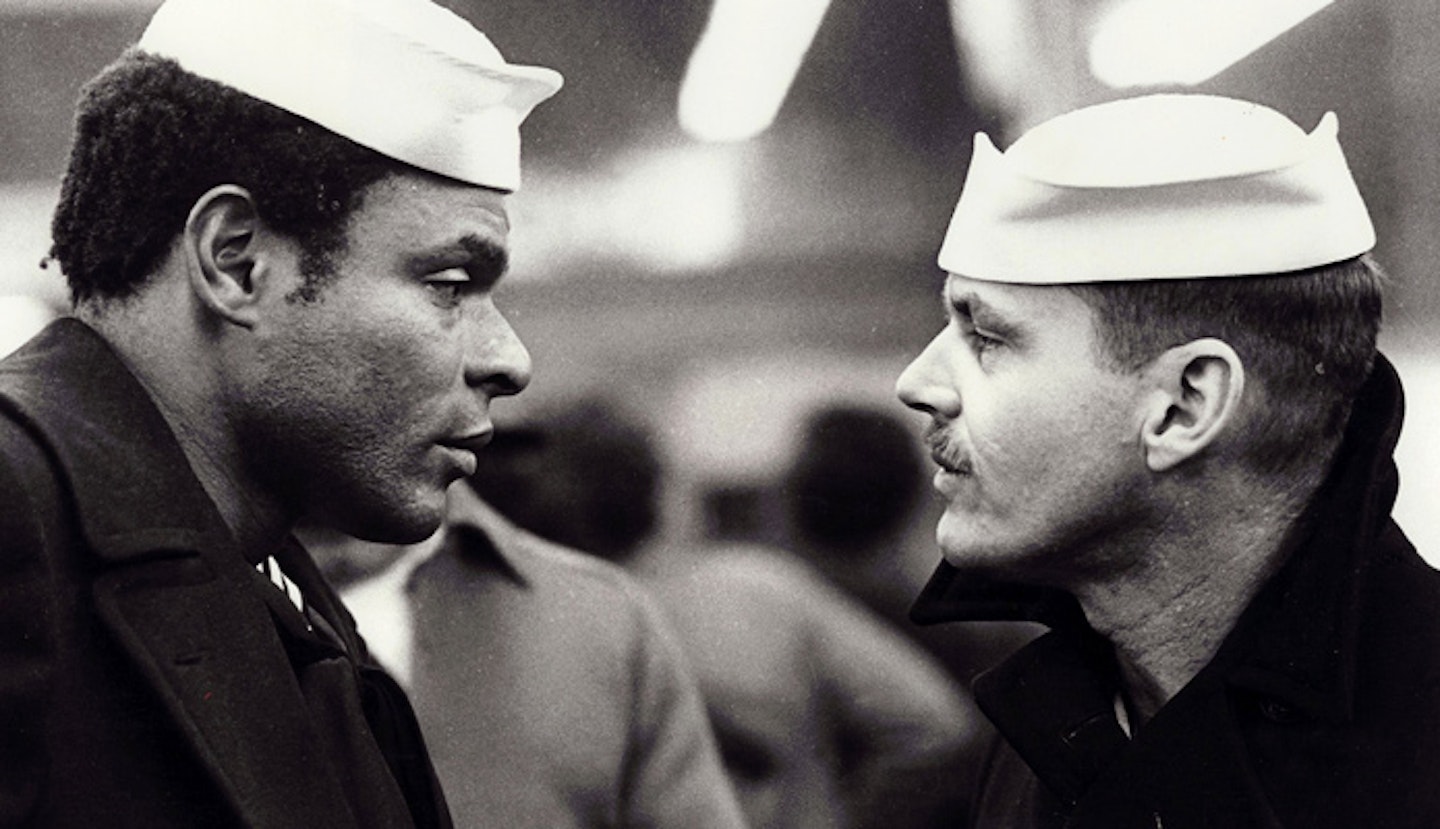
Nicholson's profane navy lifer, 'Bad Ass' Buddusky, may be a salty sinner with little intelligent conversation and ambitions limited to drinking, brawling and whoring. But he reveals a tender decency in his sympathy for the childish lug he's escorting to eight years in the brig and his exasperating endeavours to give the kid a happy send-off. Nicholson also offers numerous painfully funny moments in this superior comedy-drama. Most memorable moment: Disappointing the bartender with the news, "I am the motherfucking Shore Patrol, motherfucker!"
6: THE POSTMAN ALWAYS RINGS TWICE (1981)
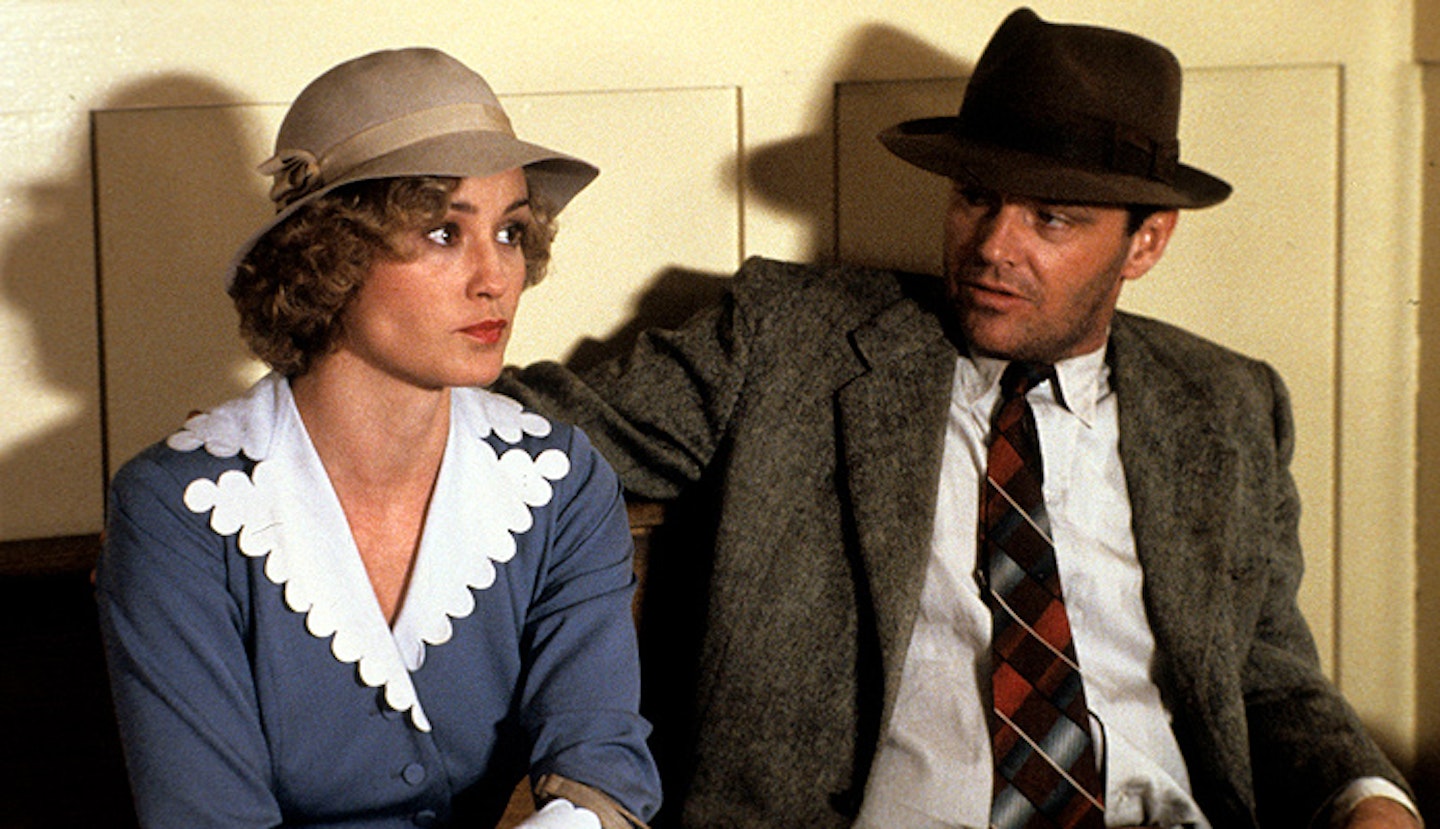
The folly of remaking the 1946 noir classic was partially mitigated by Nicholson's deadbeat drifter, scripted by David Mamet. As in Chinatown he slips believably into period look, this time a down-at-heel one. And he's refreshingly subdued on arrival, although the suggestion of danger will always reside in those eyebrows – witness the glint visible as he's first tempted by ease, profit and unlimited sex in exchange for murder. Most memorable moment: Going for it on the floury kitchen table.
5: EASY RIDER (1969)
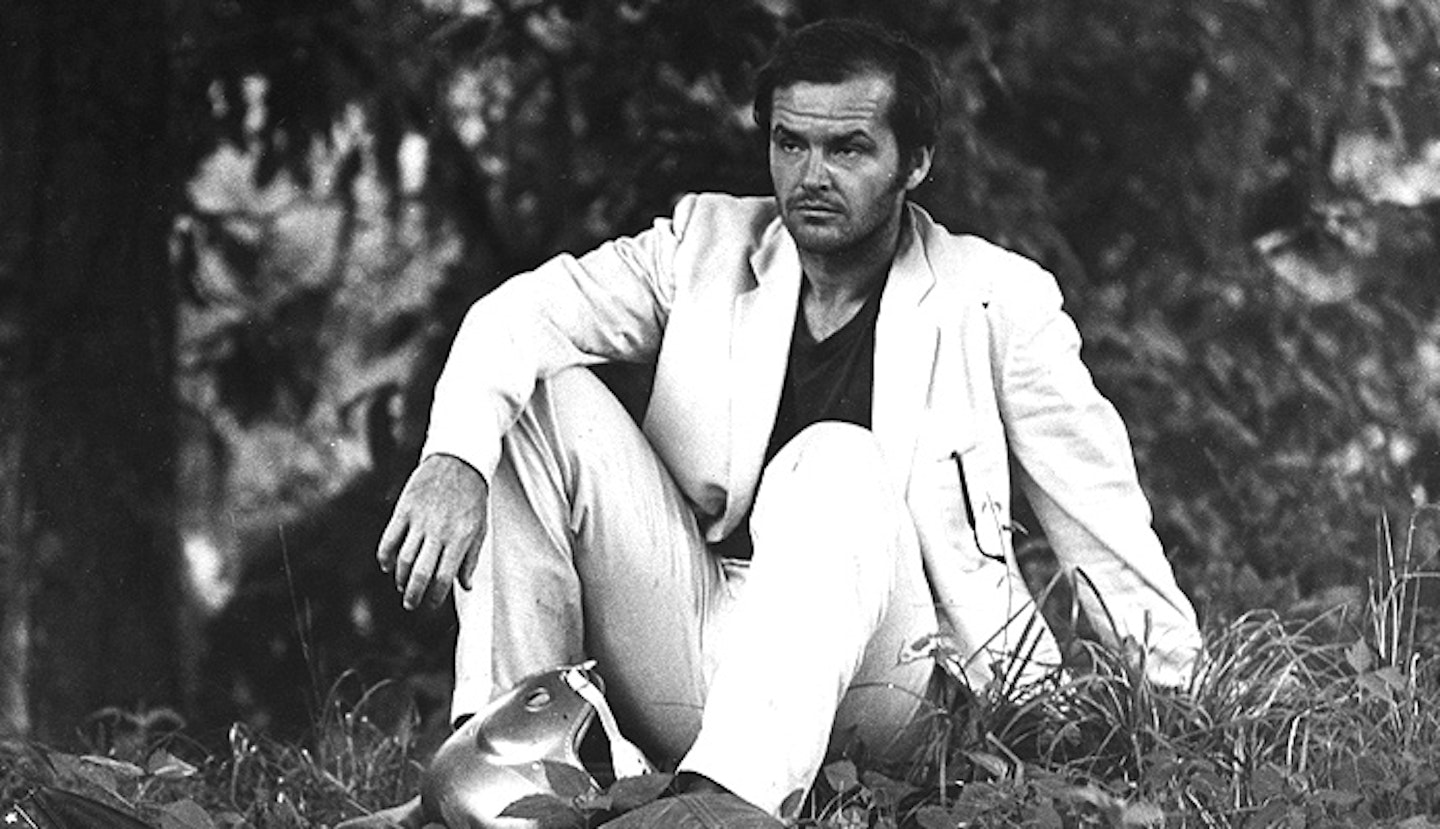
Nicholson's boozy, wry, Southern smalltown lawyer George (who springs Hopper and Fonda's hippy bikers and spontaneously drops out wearing a rumpled linen suit and an old school football helmet) is on screen for minutes. Yet that was long enough to make his name, earn him his first Oscar nomination and articulate the film's theme. It's also long enough to etch George indelibly as the educated scion in decline; weary of being the dissipated Tennessee Williams-like town 'character'. Most memorable moment: Getting giggly-philosophical stoned around the campfire.
4: THE SHINING (1980)
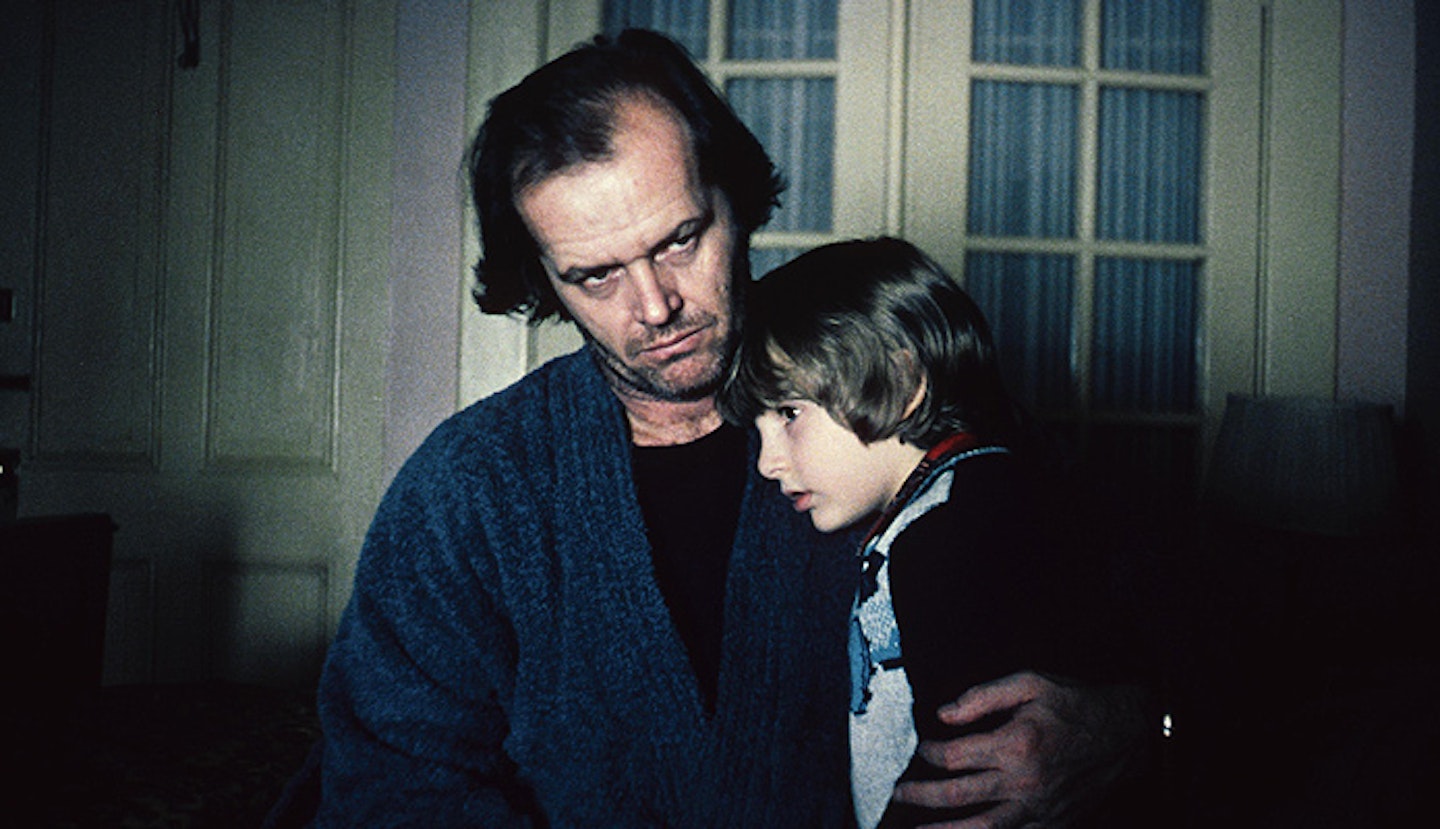
Nicholson likes to lose control, expecting directors to curb him – not when it gets unreal, but when it gets uninteresting. He's always interesting as frustrated failure Jack Torrance. Scarier even than the artistically horrific imagery is the ease with which the sinister spectres in the hotel open the door for the cruelly mischievous monster in Jack's id. Right from the job interview, for which he is clean, neat and sober, Nicholson gives off a whiff of the irritation and resentment we know will become a maniacal lashing out. Most memorable moment: "Heeeeere's Johnny!"
3: CHINATOWN (1974)
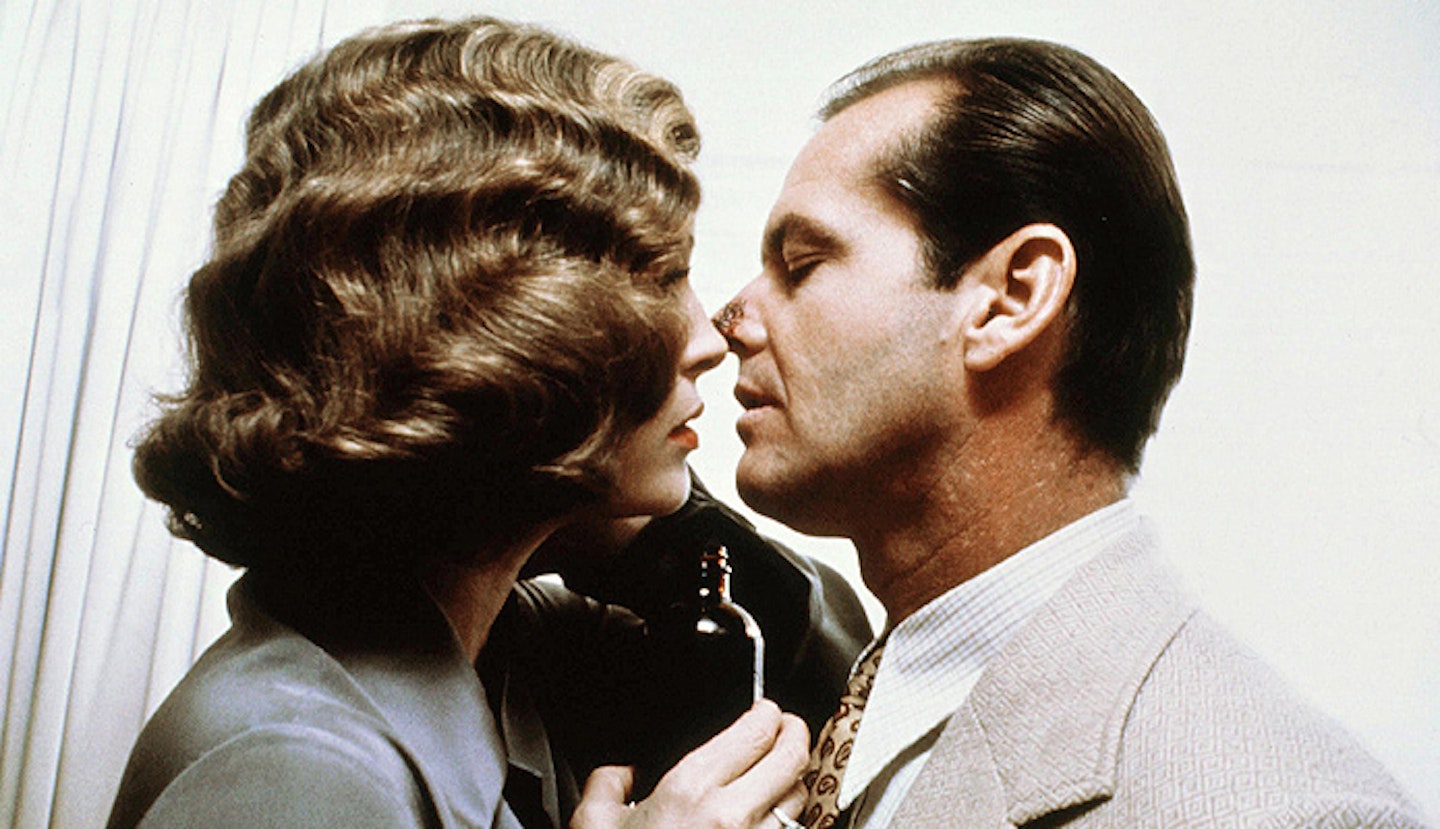
Nicholson's private eye Jake Gittes is sleeker, more dapper, more humorous, more physical and quicker to anger than hard-boiled forebears Marlowe or Spade. At the same time, he is more alienated, haunted by a veiled past. A polished ensemble, Roman Polanski and Robert Towne notwithstanding, it is still Nicholson's show, his fatalistic glamour as the cynical, impulsively decent 'tec undented by sporting a bandage over his nose for much of the film. Most memorable moment: Slapping the awful truth out of Mrs. Mulwray (Faye Dunaway).
2: ONE FLEW OVER THE CUCKOO'S NEST (1975)
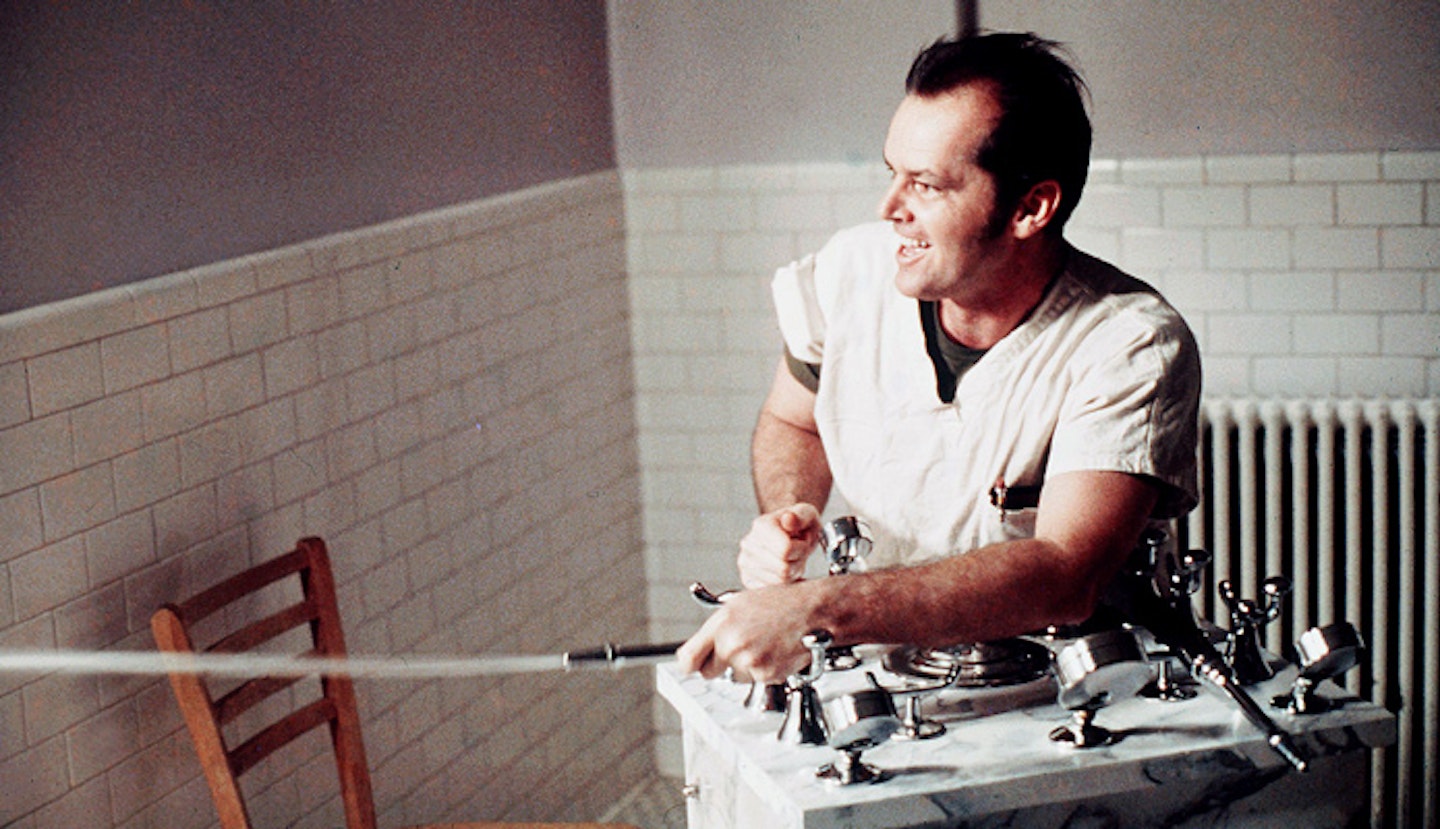
Glory all round for the adaptation of Ken Kesey's cult novel, only the second film to win all 'top five' Oscars, including Nicholson's first for Randle P. McMurphy – a bundle of his patented contrariness and contradictions in a role refused by Brando and Hackman. Subversively uplifting the patients, Nicholson's shifty, self-serving crook attains a feisty nobility, with a wily transmutation of quixotic charm into an infectious life force. Most memorable moment: Sealing the flip from comedy to tragedy by throttling Nurse Ratched.
1: FIVE EASY PIECES (1970)
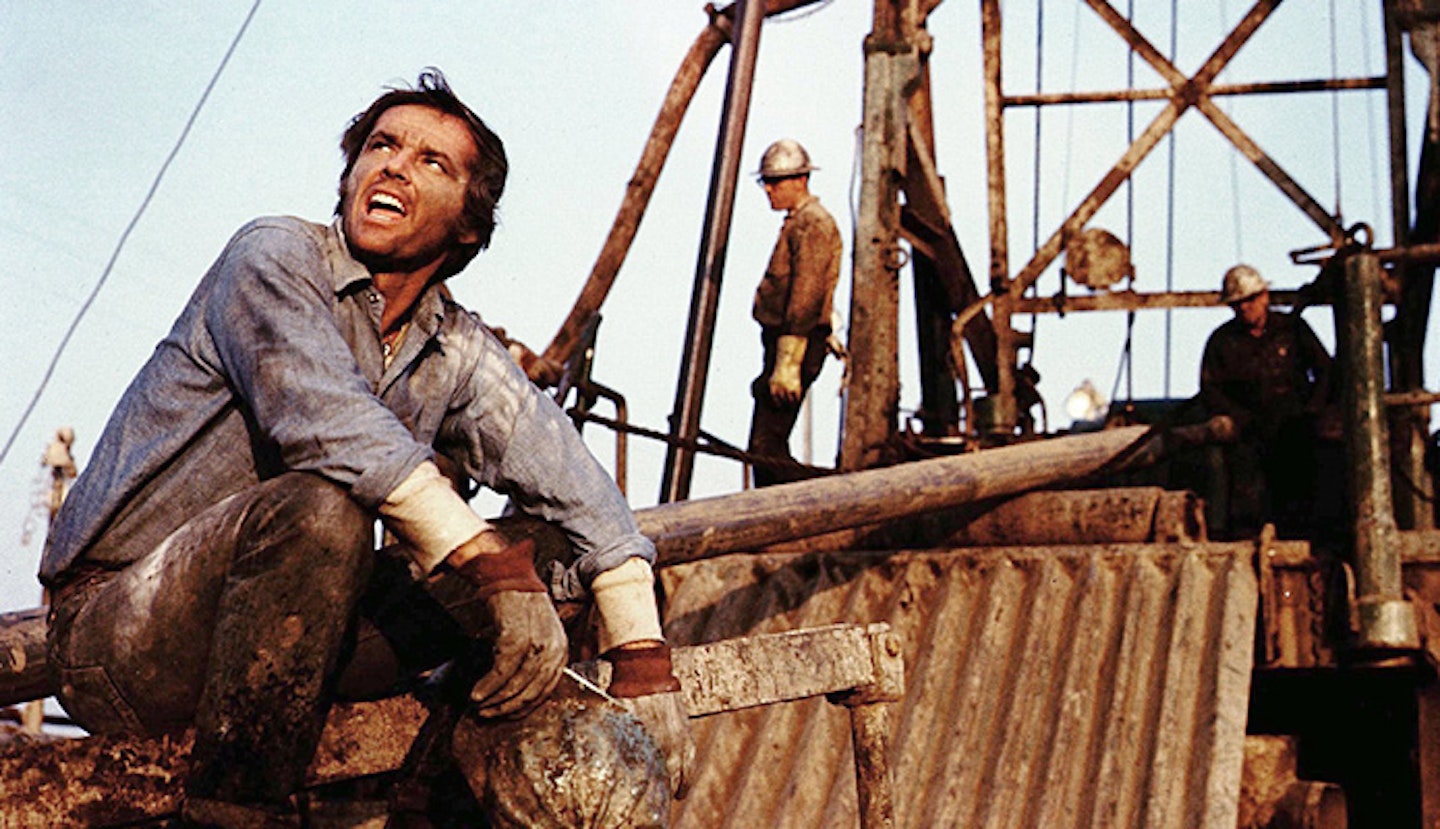
Edgy, charismatic Robert Eroica Dupea is Nicholson's seminal study, the classic disaffected American male trapped between worlds – his cultured family's, the lowbrow milieu in which he slums, and the fulfilling life elusively down the road – who loses himself playing the piano on a truck stuck in traffic, punishing a car dashboard in impotent rage, fucking his brains out. Screenwriter Carole Eastman knew Nicholson very well and wrote to his core, including the diner scene drawn from a real contretemps Jack had with a waitress. Most memorable moment: Trying to use reason to obtain a simple order of toast, and failing in a spectacular outburst.
Classic Scene: A Few Good Men
Col. Nathan R. Jessup provided Jack Nicholson with one of his most famous lines – "You can't handle the truth!" But for all the courtroom fireworks, it is the earlier lunch that showcases classic Jack, as he chomps on a cigar, chews on the Cuban scenery and dominates proceedings with a mix of wit, scorn and barely concealed anger...
EXT. OFFICER'S MESS, GUANTANAMO BAY, CUBA – DAY
Following a meal with Colonel Jessup, lead counsel Lt. Daniel Kaffee (Tom Cruise) is happy to wrap up this part of the investigation into the murder of Private Santiago. However. Lt. Commander JoAnne Galloway (Demi Moore) has a few questions about 'Code Reds' – the illegal practice of 'self discipline' among the men.
Galloway: My point is that I think Code Reds still go on down here. Do Code Reds still happen on this base, Colonel?
Kaffee: Jo, the Colonel doesn't need to answer that question.
Galloway: Yes, he does.
Kaffee: No, he really doesn't.
Galloway: Yeah, he really does. Colonel?
Jessup: Y'know, it just hit me – she outranks you, Danny.
Kaffee: (sitting down) Yes, sir.
Jessup: I wanna tell you something, and listen up because I really mean this. You're the luckiest man in the world. There is nothing on this Earth sexier, believe me gentlemen, than a woman you have to salute in the morning. Promote 'em all, I say, because this is true – if you haven't gotten a blow-job from a superior officer, well, you're just letting the best in life pass you by.
Galloway: Colonel, the practice of Code Reds is still condoned by officers on this base...
Jessup: Of course, my problem is I'm a colonel, so I'll just have to go on taking cold showers until they elect some gal President. (laughs)
Galloway: I need an answer to my question, sir.
Jessup: Take caution in your tone, Commander. I'm a fair guy, but this fucking heat is making me absolutely crazy. You want to ask me about Code Reds – on the record, I'd tell you I discourage the practice in accordance with the Commander's directive; off the record, I'd tell you it is an invaluable part of close infantry training, and if it happens to go on without my knowledge, so be it. I run my unit how I run my unit. You wanna investigate me? Roll the dice and take your chances. I eat breakfast 300 yards from 4,000 Cubans who are trained to kill me, so don't think for one second that you can come down here, flash your badge and make me nervous.
Kaffee: (quietly) Let's go.
They all make to leave, when Kaffee stops and enquires about the paperwork behind Santiago's transfer request.
Jessup: Of course you can have a copy of the transfer order for the file, Danny. I'm here to help in any way I can.
Kaffee: Thank you.
Jessup: You believe that, don't you Danny? That I'm here to help you in any way I can?
Kaffee: Of course.
Jessup: The corporal will take you by personnel on your way out to the flight line and you can have all the transfer orders you want.
Kaffee nods and they walk away.
Jessup: But you have to ask me nicely.
Kaffee: (turns) I beg your pardon?
Jessup: You have to ask me nicely. You see, Danny, I can deal with the bullets and the bombs and the blood. I don't want money and I don't want medals. What I do want is for you to stand there in that faggoty white uniform and with your Harvard mouth extend me some fucking courtesy. You gotta ask me nicely.
Kaffee: Colonel Jessup, if it's not too much trouble, I'd like a copy of the transfer order, sir.
Kaffee: No problem.
This article was first published in Empire Magazine issue #183 (September 2004).
